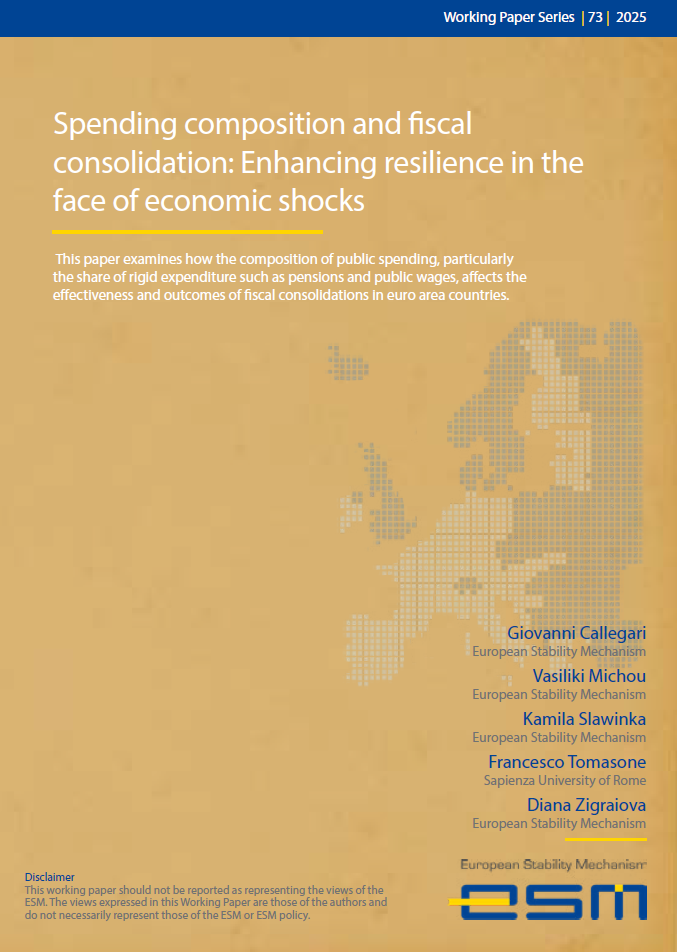Title: Spending composition and fiscal consolidation: Enhancing resilience in the face of economic shocks
Summary: This paper examines how the composition of public spending, particularly the share of rigid expenditure such as pensions and public wages, affects the effectiveness and outcomes of fiscal consolidations in euro area countries.
Authors: Giovanni Callegari (ESM), Vasiliki Michou (ESM), Kamila Slawinska (ESM), Francesco Tomasone (Sapienza University of Rome), Diana Zigraiova (ESM).
Abstract: In the aftermath of recent shocks, including the Covid-19 pandemic, energy crisis and a changing geopolitical landscape, many European countries face high debt and increased uncertainty. A key policy question is whether euro area member states can effectively implement successful consolidation plans. This paper explores how the initial composition of public spending – particularly the share of rigid expenditure such as pensions and public wages – affects a government’s ability to implement successful fiscal consolidation strategies in response to shocks. Drawing on past fiscal adjustment episodes, we develop a formal framework to assess how ex-ante fiscal conditions shape consolidation outcomes. Our analysis reveals that high share of a rigid spending significantly limits governments’ flexibility, resulting in more pronounced cuts to investment and other more flexible expenditure categories. This leads to deeper GDP contractions, slower recoveries, and less successful debt reduction in high-rigidity environments. In contrast, countries with more flexible spending structures experience more balanced expenditure cuts, resulting in more effective consolidations and greater resilience. Our findings suggest that proactive fiscal planning, including gradual shifts toward more flexible spending composition, can enhance fiscal resilience and improve the likelihood of a successful fiscal consolidation. The study offers important policy implications for governments seeking to navigate fiscal distress and long-term challenges such as ageing populations and the green transition.
Disclaimer: This Working Paper should not be reported as representing the views of the ESM. The views expressed in this Working Paper are those of the author(s) and do not necessarily represent those of the ESM or ESM policy. No responsibility or liability is accepted by the ESM in relation to the accuracy or completeness of the information, including any data sets, presented in this Working Paper.
Keywords: Fiscal consolidation, public spending composition, rigid spending, local projections.
JEL codes: C25, C33, H50, H62, H63
